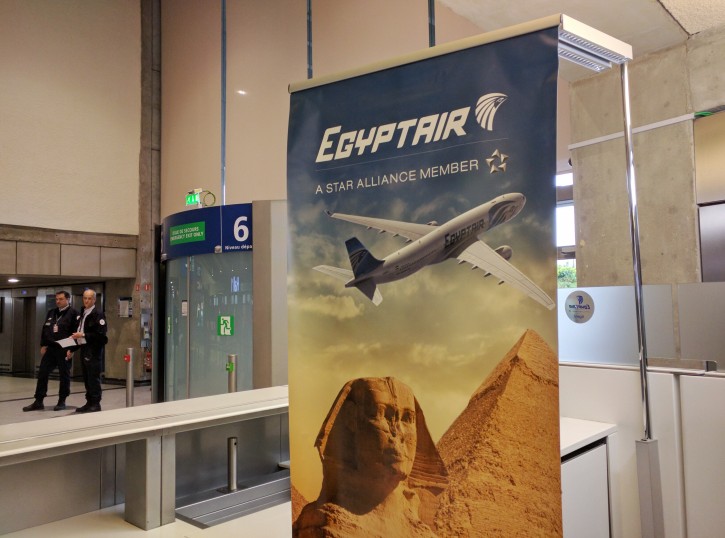
Paris – French authorities have tightened security at Paris airports since last year’s attacks in the city with thousands of border police officers, custom personnel, soldiers and private guards patrolling daily in the three airports serving the French capital.
In addition to thousands of police, army and customs members, some 5,000 security guards working for private contractors are assigned to the Roissy-Charles-de-Gaulle, Orly and Le Bourget airports, according to Paris Aeroport, the authority in charge.
These forces are responsible for ensuring security both in the airports’ public areas and in reserved areas, such as boarding areas, baggage sorting sections and tarmac areas where only passengers with boarding passes and airport staff with special red badges are allowed.
At the Charles-de-Gaulle airport, a few hours after learning a Paris-Cairo plane went missing approaching Egypt, Salama Kordeya, a 66-year-old business traveler, shrugged off questions about whether he was comfortable stepping on to the next EgyptAir flight to Cairo.
“Thousands of car accidents (happen every day) and we use cars,” he told journalists waiting outside departures. “I’m not afraid.”
Since the deadly attacks last year in Paris, several security-building measures have been put in place in the city’s airports.
In the terminals, the number of patrols has increased in public areas, video surveillance has been strengthened with 9,000 CCTV cameras overall, bags and coats have been subject to random checks at the entrances, police dog teams who can detect explosives are patrolling, and “profiling” agents trained to detect “unusual behaviors” have been recruited.
Earlier this month, Christophe Blondel-Deblangy, an official with the special State representative in charge of the security at the Charles-de-Gaulle airport, said a “specific intelligence cell” made up of some 30 police, army and custom officers, will be assigned to CDG airport on a daily basis, starting next month
In Charles-de-Gaulle airport alone — the second biggest in Europe and the ninth in the world for passenger traffic — some 86,000 of the 100,000 airport staff — baggage handlers, airline boarding staff, duty free shop employees, maintenance workers, restaurant staff, firefighters, rescue workers, air traffic controllers — carry “red badges” that provide access to restricted areas of the airports. These badges are given for three years by local authorities, not by the airports, after several police investigations.
Last December, after the deadly Nov. 13 Paris attacks, the head of the Paris Aeroport authority, Augustin de Romanet, said that nearly 70 red badges had been withdrawn “for the phenomenon of radicalization,” and 4,000 lockers of personnel were searched.
Since the attacks of September 11, 2001, in the U.S., all luggage going in the hold is controlled, particularly to detect explosives, with the help of more than 150 specialized machines, the authority said. The Paris airports have 250 checkpoints with X-ray screening to check all the passengers, luggage, airport staff, goods and vehicles entering the restricted areas.
As reported by Vos Iz Neias
